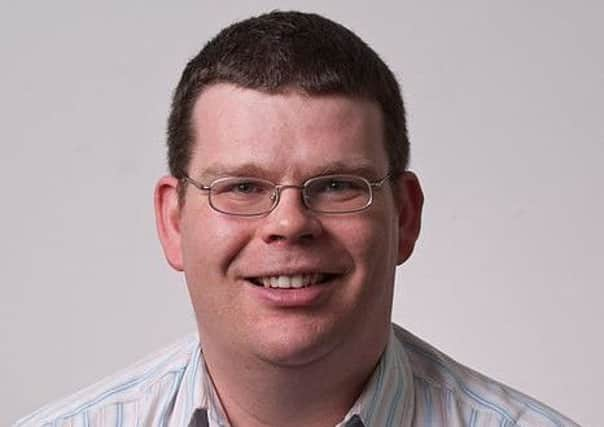Peter McColl: Debate in a digital world needs new rules


Public debate has become more and more difficult. Trust has declined, and action is hampered by conflicting beliefs and a narrowed public sphere.
Discussions online are particularly heated – with ‘trolling’ having evolved from sarcastic or playful interactions to a medley of death threats and angry denunciations.
Advertisement
Hide AdAdvertisement
Hide AdThe Young Academy of Scotland is working on how to change this. Our first Responsible Debate event happened last month in Edinburgh, drawing together both participants in highly contested debates, and those who have to mediate those debates. Over the past two and a half millennia, debate in Western culture has followed a small number of patterns.
These patterns have their roots in Greek philosophy, Judeo-Christian beliefs and the development of parliamentary democracy. They are well codified. We see these patterns in school debating, in parliament and in the judicial system. Speakers are given equal opportunity, they speak alternately for and against a proposition, there is a summing up and, at the end, a decision is taken, often by a vote. While there are many variations on this, it is how decisions are made.
The rules of debate we have inherited are not perfect, but they create a shared platform for sorting out difficult issues face-to-face. We are now entering a new world where most debate does not take place in person. A world where there are no moderators, chairs or people to take the place of the parliamentary speaker. A world where most issues are pre-digested online, underpinned by information that may be of dubious factual value, and where participants are fed conspiracy theories. We need a new approach to debate in this digital world.
That is why the Young Academy of Scotland has decided to run a programme to create a new charter for responsible debate. We started with a full day workshop, where we drew together some principles for debate.
At our event, the University of Edinburgh chaplain, Harriet Harris, ran an exercise in which participants were paired to speak and listen to each another. The listeners were asked first to agree, then to disagree, and then to show indifference to the speaker.
When paired with an ‘indifferent’ speaker, I found myself saying things that were more and more extreme. This is what I imagine a lot of online debate feels like – having to shout louder, to take a more extreme position to be noticed.
When a debate becomes crowded by loud voices making provocative statements it is difficult for different views to be heard. Debates tend toward the extremes, and it can become difficult to forge a way forward. Sometimes it becomes necessary to have a polarised debate – historic experiences like slavery or apartheid in South Africa are examples of why sometimes consensus or compromise is not the right approach. But too much polarisation can make living together difficult.
As societies across the world become more engaged in debates that tend to emphasise difference rather than finding solutions to important issues, it becomes ever more important to identify ways of debate that steer away from conflict.
Advertisement
Hide AdAdvertisement
Hide AdAs more debate happens online and the need to address important issues increases, so does the need to avoid unnecessary polarisation.The rules of debate that have served us up to now are clearly not enough, we need to create new principles for debate in the internet age. We believe that the more we talk about responsible debate, the greater the chances of making debate more responsible. Our workshop helped to outline some of the ways we can do that.
But this is just the beginning: the Young Academy, alongside the Royal Society of Edinburgh is seeking to bring this approach to a wider range of audiences.
Led by Professor Matthew Chrisman, we are seeking to draw a range of principles together to underpin good debate. We hope these will be used in Scotland and beyond. We are planning festival events later in the year to get input from a wide range of people around Scotland, especially children – our debaters of the future, with one scheduled for the Edinburgh Festival already.We would love to see you at one of those events, or to engage with us through the Young Academy of Scotland, the Royal Society of Edinburgh or on Twitter on the #YASresponsibledebate hashtag.
Peter McColl, head of futures and policy at Snook and member of the Young Academy of Scotland.